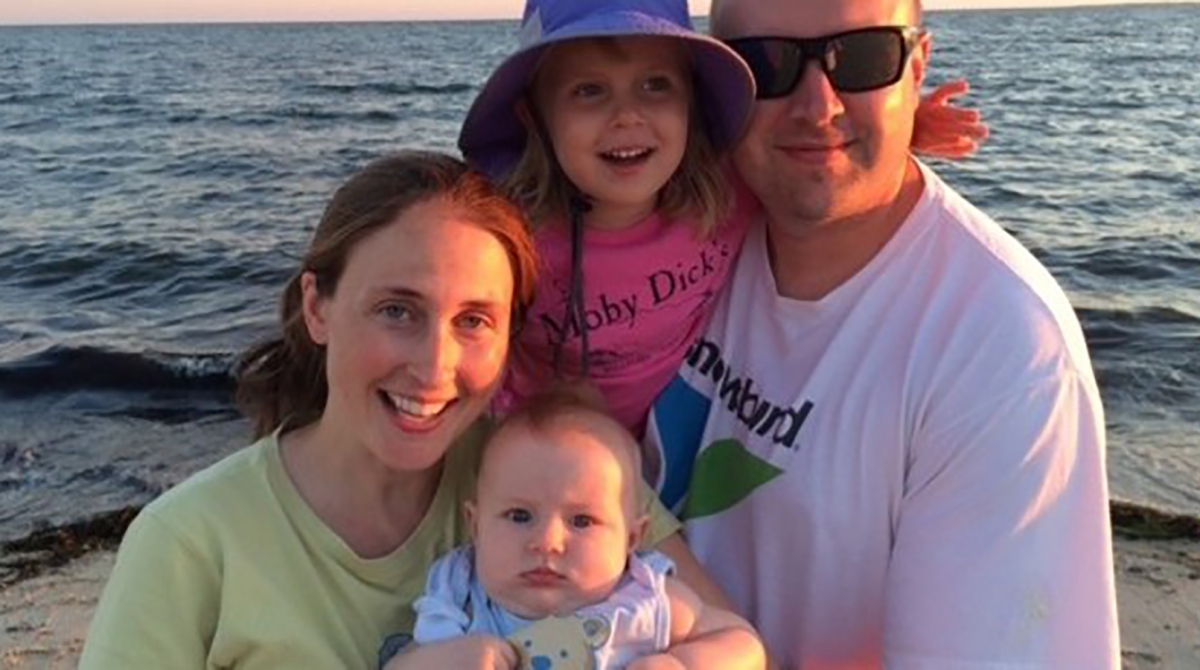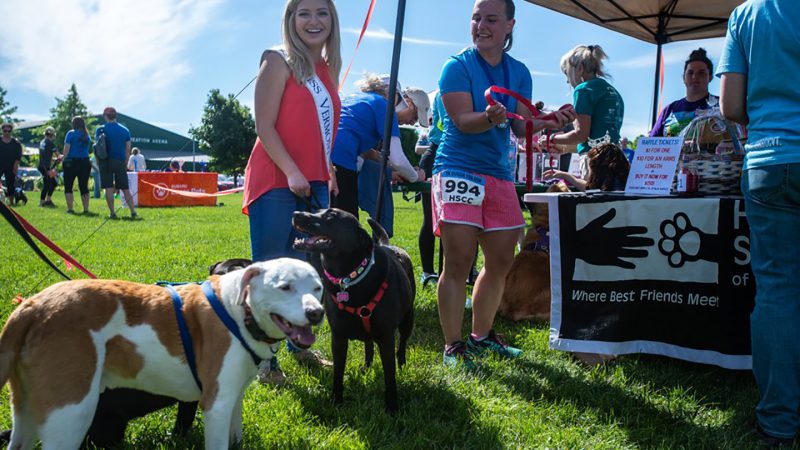In 2004, on the Monday after graduating from UVM with a BS in Molecular Genetics, Valarie Devlin began her career at the Vermont Department of Health as a field agent, “collecting dead birds to be tested for West Nile virus,” she says. She also gave presentations on WNV prevention to gardening clubs, scout troops, and hunters. After that, Devlin became a public health specialist in emergency preparedness at the St. Johnsbury District Office. “Eventually, a laboratory position opened up,” Devlin says, “and I jumped at the opportunity.”
These days, you’ll find Devlin—the mother of two and a student in UVM’s Graduate Certificate of Public Health program—working full-time as a microbiologist IV at the Vermont Department of Health Laboratory, specializing in foodborne outbreak detection through PulseNet. Devlin also works in the animal rabies, water, bacteriology, bio-threat, and molecular testing areas. She plans to transfer her UVM certificate credits to the Master of Public Health program next fall.
That Devlin has a lot on her plate is an understatement. So is the fact that her story can inspire anyone wondering how to balance educational goals with the demands of family and work. “There are nights (early mornings!) where I wonder if I was crazy to go back to school,” Devlin says. “Then I’ll read something or participate in a class discussion that completely blows my mind.”
So how does she find her family/work/education balance? That’s what we wanted know.
Given your family and work responsibilities, what led you to UVM’s Certificate of Public Health?
Going back to school was something I always wanted to do. I’d looked into public health master’s programs at other schools, but all required time spent on campus. My personal and professional life doesn’t allow for this, so I ended my search. When the UVM program began, I was excited to have such a great opportunity in my own backyard, with the bonus being that I could complete the entire program online.
Tell us about your work at the Vermont Department of Health.
I can’t describe my work without clarifying that 100% of our outbreak-response activities are a team effort in the lab and with our partners in other sections of the Health Department. Foodborne outbreaks are incredibly exciting. It’s a rush to find DNA fingerprint matches between clinical isolates to help epidemiologists tie together a complicated web of patient interviews. I’m always amazed by the stories behind these outbreaks—and how many people still don’t use a meat thermometer!
Other projects I’ve been a part of include:
- Wildlife surveillance to test for rabies and prevent its spread across the Vermont-Canada border (Don’t touch wild animals, even if they’re sick or appear to be abandoned.)
- Patient testing during the 2009 influenza pandemic
- Testing private well water for hundreds of Vermonters after tropical storm Irene
- Patient testing and clinician education during the recent Bordetella pertussis outbreak
How does UVM’s Public Health Certificate support your current work and future goals?
I’m just over a year into the program, and already I’ve learned how local policies like product labeling and lot-tracking software can mean the difference between solving an outbreak in a week versus never solving it. I’ve learned how national policies are critical for controlling food-system safety, from pesticides that are harmful to human health, or irrigation systems that transmit disease to crops and to humans. I’ve learned how crop-management practices, such as cover crops and crop rotation, are essential for a healthy, sustainable food supply. And I’ve learned that many Vermonters struggle with food security and how food security affects the way foodborne outbreaks unfold.
My goal is to better understand factors that contribute to outbreaks and what happens after detection in order to prevent or lessen the impact of future outbreaks. Knowing about root causes and outcomes helps me perform my job with more clarity.
What’s your secret to navigating the demands of a busy schedule?
I would say “sleep,” but with a nocturnal 7-month-old, that’s not true! I have to credit the constant encouragement of my husband, Jesse. Also, I’ve chosen to tackle the Public Health Certificate in steps that are manageable for my schedule. For example, taking one class per semester lets me focus on the material and class discussions in real time and not feel overwhelmed by assignments.
What advice can you offer people concerned about work-life balance as they consider postgraduate education?
The programs at UVM are flexible. The professors and staff are incredibly approachable (even if you’re 1,000 miles away). The best advice I can offer is to just try. Take one class, or one semester of classes, and create a support system. A partner, a friend, coworkers—anybody to encourage and redirect you when your work-life-school dynamic becomes unbalanced—can be the difference between success and giving up, or worse, never starting.
I had plenty of fears before getting started. Some return when I’m having a particularly stressful day: Am I losing precious time with my family? Is it selfish to spend money on my education? What if I can’t keep up with class work? Honing my organizational and time-management skills helped me manage these fears. And when tackling any new challenge, whether at work, at school, or in life, I often think of Franklin D. Roosevelt’s quote: “The only thing we have to fear is fear itself.” So simple, yet so true!
Mariette Landry is a senior editor and writer for UVM Continuing and Distance Education.



